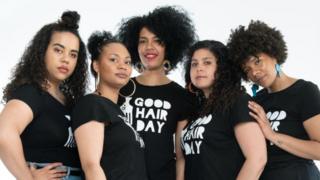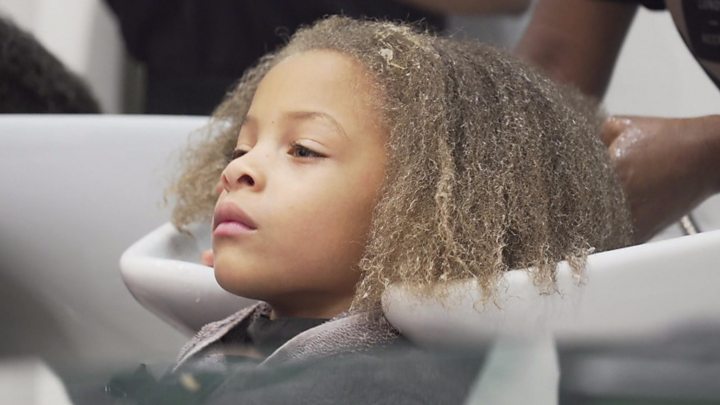Taking on racism in Finland with an afro
More than 50,000 people with African background live in Finland, according to Statistics Finland.
Michaela Moua is one of them.
Born to a Finnish mother and Ivorian father, she is one of five Afro-Finns behind Finland’s only annual event dedicated to afro hair, the Good Hair Day.
“You don’t see us in the Finnish society. We’re a visible but invisible minority,” she tells the BBC.
The hair event, created to celebrate afro hair, was born four years ago. This year it was held on 24 August.
Ms Moua says the event, which consists of workshops and panel discussions, was born out of necessity.
“We wanted to create an event that not only celebrated afro hair but was also educational and offered advice on how to take care of afro hair – especially for mixed race families,” she says.
Although the event is about hair, Ms Moua says the issue combs deeper.
“Many of us [Afro-Finns] thought for a long time that we were alone and a lot of us felt very lonely. This was a way to bring us together and realise there are more of us than we thought.”
She says beauty standards prioritise Western beauty ideals and being brown or having afro hair is not seen as beautiful in Finland.
“A lot of us were born here but regardless, society tells us we are not Finnish. Who gets to be Finnish and what does being Finnish mean?” she asks.
‘It’s empowering’
Finland, with its relatively small population, has been a trendsetter in many fields since independence in 1917.
The country scores consistently well on international ratings for stability, freedom, public safety and social progress.
However, sexual and gender equality have not translated as easily to race relations.
“Last year EU released a study about racism in EU countries,” Ms Moua says. “Finland topped the list.”
The EU’s agency for fundamental rights (FRA) found Finland to have the highest rates of race-related harassment and violence.
“People feel more comfortable saying offensive things in public,” Ms Moua continues but adds things will change for the better.
“We don’t want to be objects. We are creating our narrative now and with projects like the Good Hair Day we are creating a safe space to talk about our experiences, to talk about our hair and offer advice and support to one another. It’s empowering. We are here to uplift our community.”
Source: Read Full Article




